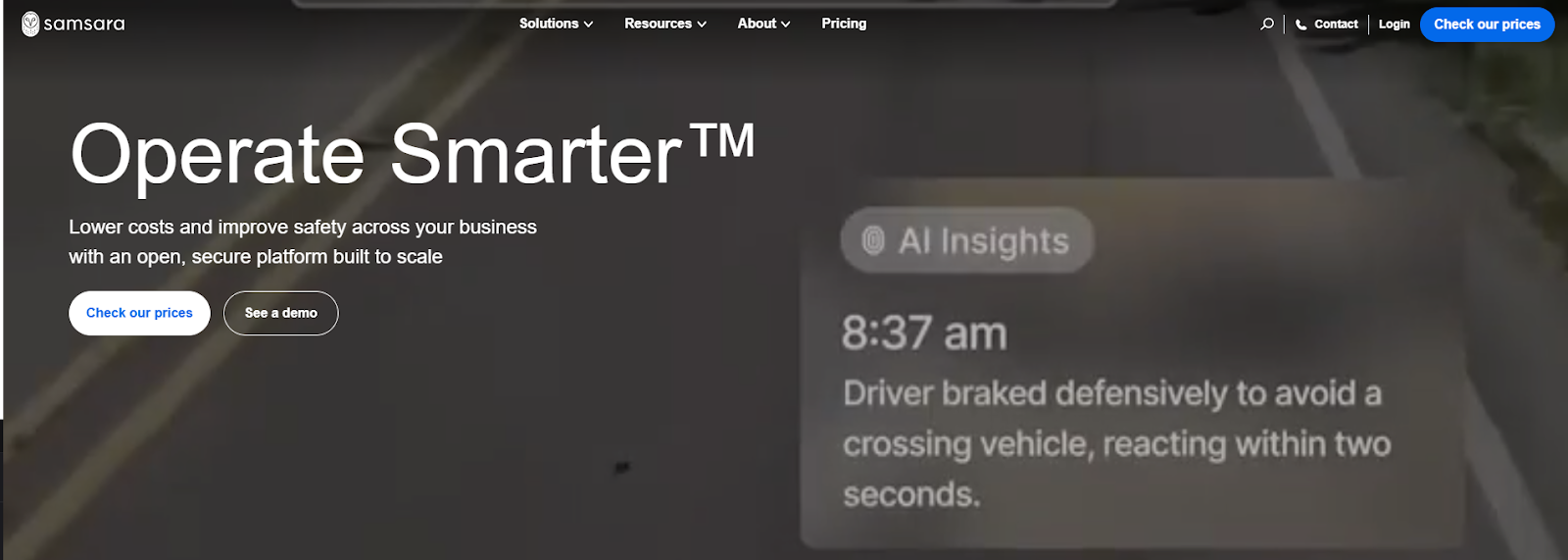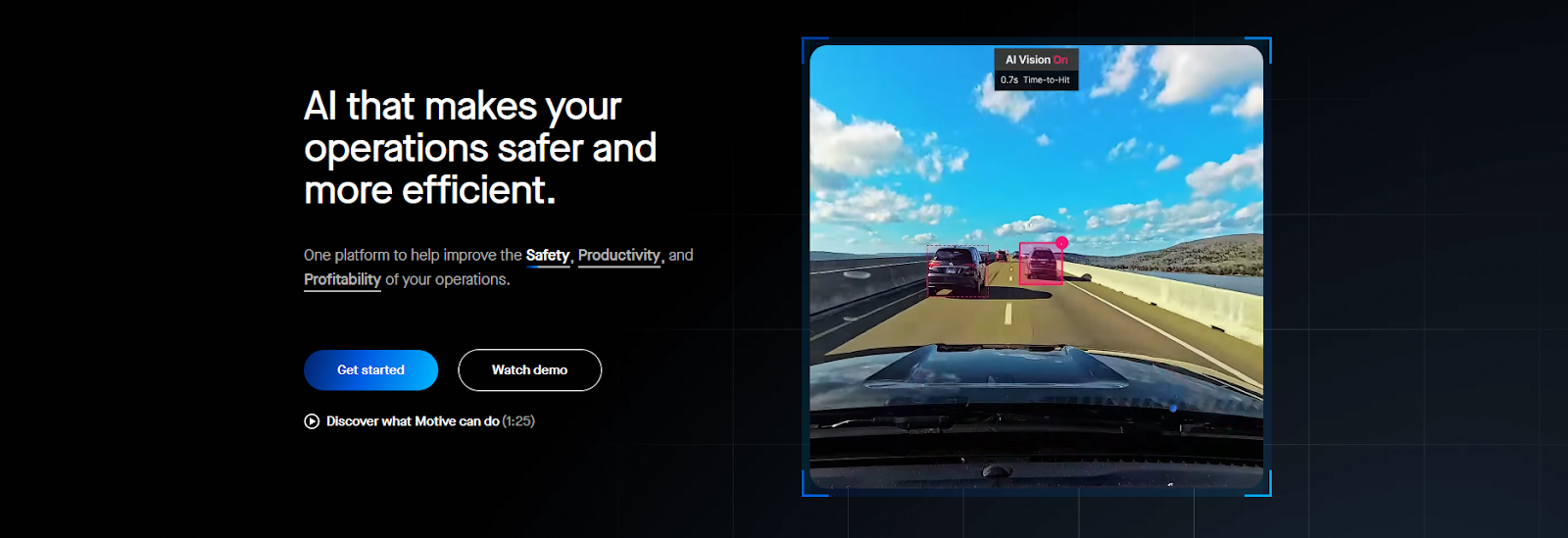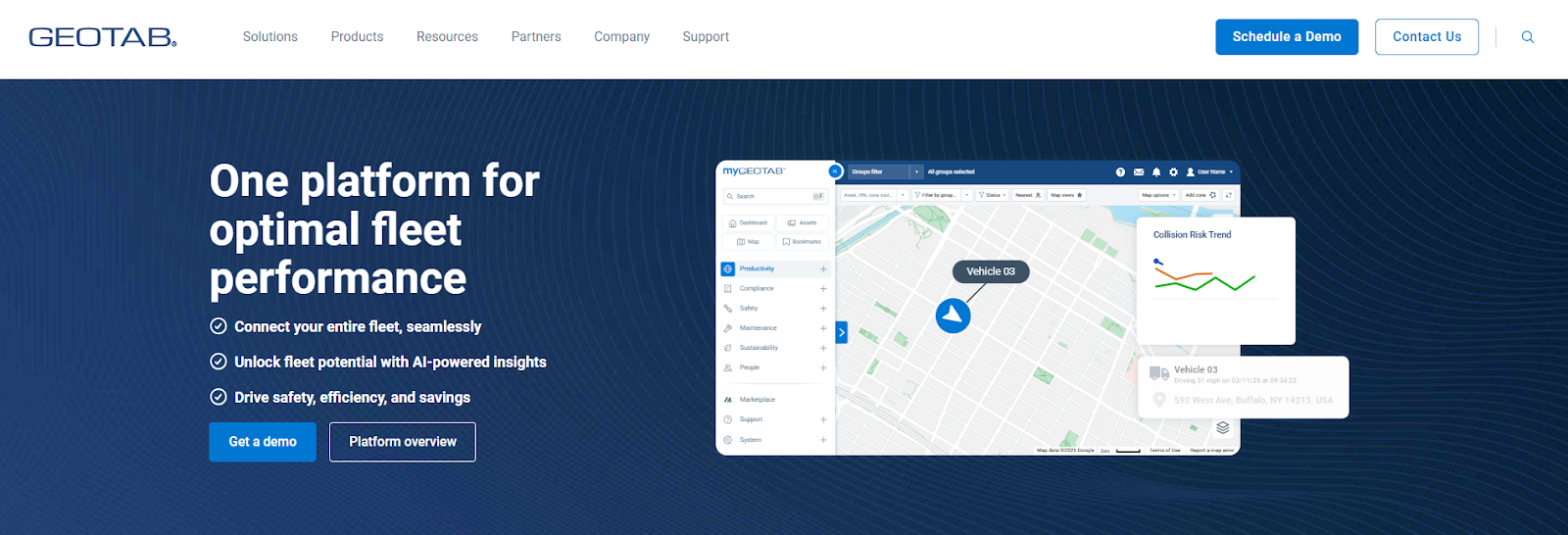For years, Verizon Fleetmatics (now known as Verizon Connect) has been a go-to choice for enterprise fleets needing GPS tracking and telematics. Its platform combines vehicle tracking, safety tools, and analytics under one umbrella. But as the market matures in 2025, many fleet operators are re-evaluating their options.
The reasons are straightforward: high costs, long contracts, and limited customization have pushed operations managers to look for more flexible, hardware-agnostic GPS fleet tracking software. New players now deliver the same enterprise-grade reliability without the complexity or commitment.
Below is a breakdown of the best Verizon Fleetmatics alternatives in 2025: what they offer, where they shine, and why many organizations are making the switch.
Why Companies Are Moving Away from Verizon Fleetmatics
Verizon Fleetmatics was built to serve large corporate fleets. Its strength lies in broad coverage and stable infrastructure, but those same qualities can make it rigid for clients who want more agility.
Fleets often cite three main reasons for switching:
- Cost and contract structure. Verizon typically requires three-year agreements and device installations that make it expensive to scale up or down.
- Limited flexibility. Integrating Verizon’s telematics with existing maintenance, dispatch, or ERP systems often requires workarounds.
- Support and customization. Large providers can take longer to respond to smaller accounts, leaving mid-size organizations underserved.
Today’s telematics buyers expect hardware flexibility, open APIs, and unified systems that manage not just vehicles but equipment, maintenance, and compliance in one dashboard. That’s exactly where modern competitors have gained ground.
Verizon Telematics Alternatives At a Glance
Comparing Verizon Fleetmatics alternatives in 2025? Here’s how today’s leading GPS fleet tracking software stacks up on features, flexibility, and real ROI.
1. Track Star

Track Star is one of the strongest Verizon Fleetmatics alternatives for government, utilities, and equipment rental fleets. Founded more than 25 years ago, it delivers a unified GPS fleet tracking software that goes beyond location data to include Enterprise Asset Management (EAM), maintenance automation, compliance, and video telematics.
Unlike Verizon, Track Star is hardware-agnostic, meaning it works with existing OEM modems, OBD-II devices, BLE tags, and third-party sensors. This flexibility lowers the total cost of ownership and simplifies implementation across mixed fleets.
Public safety, municipal, and utility fleets often choose Track Star for its proven reliability and ability to track anything (from snowplows to generators) on the same map. Preventive maintenance tools automate service schedules, digital work orders reduce downtime, and proactive alerts improve driver safety.
Pricing averages $18 or less per vehicle per month, depending on configuration, and contracts are more flexible than Verizon’s. For organizations needing a Verizon Fleetmatics alternative that offers full visibility without vendor lock-in, Track Star delivers enterprise power with personal-level support.
2. Samsara

Samsara is another big name in telematics. It combines vehicle tracking, AI dashcams, ELD compliance, and safety coaching in a polished, cloud-based platform. Samsara’s interface is intuitive, and its real-time video and analytics capabilities lead the market.
The downside for many is the three-year contract and higher per-vehicle cost (typically $27 to $33 per month), plus additional fees for hardware and advanced video features. Samsara’s model fits large logistics or trucking operations with dedicated tech teams, but smaller or public sector fleets often find it overly complex.
Compared with Verizon, Samsara is more modern and data-rich but still requires a long-term commitment. Fleets seeking the same level of insight without the heavy contract often evaluate Track Star as a more adaptable choice.
3. Motive (formerly KeepTruckin)

Motive focuses on driver safety and AI analytics. It’s popular among commercial transport fleets that need ELD compliance and driver monitoring. The system uses AI dashcams and a large human review team to detect risky behavior in real time, helping reduce accidents and insurance costs.
Motive’s pricing starts near $25 per vehicle per month, plus hardware (~$150 upfront). While it excels at trucking and delivery operations, it’s less suited to mixed-asset or equipment-based fleets, where organizations need to track not only vehicles but off-road machinery, trailers, and tools.
Track Star often appeals to these clients because its platform includes both fleet tracking and enterprise asset management (EAM), a combination Motive lacks.
4. Azuga

Azuga offers an easy-to-use GPS fleet tracking software that focuses on driver engagement. Its unique reward program lets fleets issue gift cards for safe driving, which helps reduce risky behavior and insurance costs.
Plans range from $25 to $35 per month per vehicle, with optional dashcam add-ons around $30 to $40. Azuga suits small-to-mid-sized fleets that prioritize driver morale and simplicity.
However, it lacks the deep maintenance, compliance, and integration capabilities larger organizations need. For complex or government fleets, a more enterprise-ready Verizon Fleetmatics alternative like Track Star typically delivers better ROI and control.
5. Geotab

Geotab is one of the longest-standing providers in telematics, known for its wide ecosystem of hardware and partner integrations. Its modular approach allows clients to select add-ons for maintenance, safety, and reporting.
However, most Geotab implementations are handled by resellers under different brand names, which can create inconsistent pricing and support experiences. Pricing typically starts around $20 to $30 per vehicle per month, depending on the reseller.
Organizations that prefer a direct vendor relationship with guaranteed support often see Track Star as a stronger fit. Track Star’s in-house deployment and U.S.-based support team ensure continuity and accountability throughout the contract.
6. GPS Insight

GPS Insight targets small business fleets with cost-effective tracking starting at $15 per month per vehicle. It offers basic location monitoring, maintenance scheduling, and fuel tracking.
While its low price is attractive, GPS Insight’s simplicity means limited configurability and fewer analytics compared to Verizon or Track Star. For organizations that need in-depth reporting, open APIs, or advanced safety tools, the trade-off can outweigh the savings.
7. Linxup and US Fleet Tracking

Linxup and US Fleet Tracking both compete in the affordability tier. Linxup charges around $25 per month (up to $50 with dashcam service) and requires no contract. US Fleet Tracking even offers free hardware for 36-month deals or app-only tracking at $10 per month.
These platforms serve small contractors and service businesses that need plug-and-play devices. For larger or public sector fleets, however, they fall short in compliance support, multi-asset tracking, and scalability.
Compared to Verizon Fleetmatics, they’re easier to start with, but not designed for the data governance or customization required by municipal or industrial operations. That’s why many mid-to-large fleets turn to Track Star or Verizon, as they deliver the same simplicity with far greater depth.
Choosing the Right Verizon Fleetmatics Alternative
When evaluating a Verizon Fleetmatics alternative, fleets should look beyond price. The right choice depends on industry needs, data integration, and long-term scalability.
For example, a municipal or utility fleet might prioritize hardware flexibility and compliance reporting over driver incentives. A construction rental company may care most about tracking both on-road and off-road assets in one dashboard. A public safety agency may need strict data governance and integration with CAD systems.
Track Star’s hardware-agnostic architecture, open API, and unified fleet + asset platform make it a natural fit for these use cases. Transitioning from Verizon Fleetmatics to Track Star typically requires no major hardware overhaul, and onboarding can be phased by department or region to minimize downtime.
Ultimately, the goal isn’t just to replace Verizon’s GPS data. It’s to centralize fleet visibility, maintenance, and compliance under a single, simpler system.
Final Thoughts
Verizon Fleetmatics remains a capable enterprise telematics provider, but the market in 2025 has evolved. Fleets now expect customization, transparent pricing, and responsive support; qualities that many smaller or specialized providers deliver more effectively.
Platforms like Samsara and Motive push innovation with AI and analytics, while Track Star stands out as the most balanced Verizon Fleetmatics alternative for organizations that need full-spectrum visibility without long-term lock-in.
If you’re planning to move away from Verizon Fleetmatics, now is the best time to explore what a unified, flexible telematics system can do. Request a demo with Track Star today and see how quickly your fleet can make the switch.

.png)


.png)